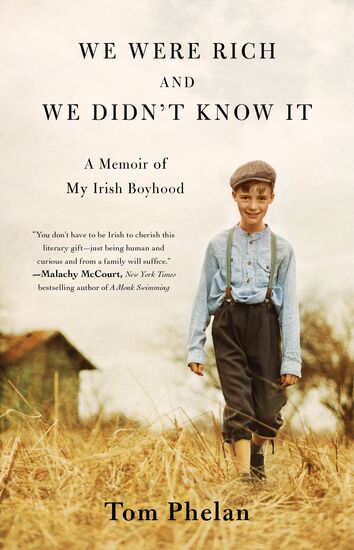By Charles Larkin
Die Zukunft wird nicht gemeistert von denen, die am Vergangenen kleben. [Those who adhere to the past won't be able to cope with the future.]…German Chancellor Willy Brandt.
Brexit happened.
Much to the surprise of all the “serious people” who were asked for their counsel prior to the event.
The experts were explicit - this was a bad idea and don’t do it.
Somehow the Remain camp didn’t make their point clearly and the vote went in favor of a UK pullout from the European Union.
The vote illustrated something that all European countries need to take note of: the population of Europe is not happy with business as usual.
The British public made a clear statement: a 72% turnout with 52% voting to leave across the UK.
But the UK was not unified.
England voted 53% to leave, Wales voted 53% to leave and Scotland and Northern Ireland voted to remain at 62% and 56% respectively.
London was strongly in favor of remaining, highlighting the city’s cosmopolitan and globalized economy.
Clearly, the two Acts of Union are now in danger.
Scotland’s unity with England is already in jeopardy with Alex Salmond and Nicola Sturgeon clearly supporting a new Scottish referendum on independence.
Sinn Féin has called for a new vote on the unification of Northern Ireland with the Republic.
The result of the UK vote was welcomed by the likes of Donald Trump, Marine LePen and Geert Wilders.
The center-left and the EU establishment center-right have been both frightened by this result and the vitriol related to immigration and economic populism fomented during the UK campaign.
The UK vote was driven by people who long for the past and have been roughly treated by the present.
The divisions in the vote illustrate that fact.
Older people voted to leave.
People in Northern England voted to leave.
People in the rust-belt of Wales voted to leave.
It was clear that people who received the short-end of the globalization stick wanted to leave.
It was also clear that a dewy-eyed notion of “Britannia,” a golden age that really never existed, also played a part in the result.
The economic implications are clear.
Sterling has fallen relative to the U.S. Dollar and to the lowest level since 1985.
At time of writing the major exchanges are all taking four to five percent declines off the back to the announcement of the result.
The Irish Department of Finance Summer Economic Statement made the following assessment (which could be considered overly positive given the extreme uncertainty and volatility): “In relation to the impact for Ireland, estimates made using the ESRI HERMES model suggest that a 1 per cent reduction in UK GDP would reduce Irish GDP by approximately 0.2 per cent, relative to baseline, over two years. This implies a possible fall in Irish GDP relative to baseline in the range of 0.5 to 1.2 per cent based on Treasury and NIESR estimates.
“A shock to UK GDP would also be expected to impact on our other trading partners. Estimates from the ESRI HERMES model suggest that if euro area GDP were to also fall by 1 per cent, a level estimated in the Treasury’s ‘severe scenario’, Irish GDP would fall by a further 0.4 per cent relative to baseline.
“Separately, both UK reports predict a depreciation of sterling in the event of a vote to leave. The impact of a 5 per cent sterling depreciation was previously presented in the Stability Programme Update in April, and indicated a loss in Irish GDP of 1 per cent after 2 years. This result also incorporates the impact on Ireland of wider spillover effects on the global economic environment from a sterling depreciation.”
All G7 central banks have opened swap lines and begun to coordinate in a fashion not seen since the 2008 global financial crisis. The first announcement made by Bank of England Governor Mark Carney was the availability of £250 billion pounds of liquidity to UK banks (around $343 billion at the time of writing, so about 50% of the 2008 TARP funding authorized by Congress in the teeth of the banking crisis).
At the moment the Irish government has not fully formulated a plan of action and the statement by the Taoiseach following a lengthy Cabinet meeting the morning after the vote illustrated that the situation was still being appraised.
The implications of the movement of Sterling are beyond what was originally estimated and the stages that will be taken between now and the final exit of the UK in approximately 24 months will be unknown until the EU Council of Ministers agrees a plan of action.
Dublin, as much as London and Brussels, is in shock.
The future now is not like the past.
It is totally different.
David Cameron gambled on Brexit as a way to unify his party and country and lost big personally as well as professionally.
Boris Johnson and Nigel Farage gambled on the British disease of nostalgia being sufficiently pervasive after a decade of misguided austerity policies and institutionalized arrogance from the London government towards the regions of England.
I cannot say what will happen to the UK now.
Economically, volatility will be extreme and Ireland will have a difficult 36 months ahead.
In a decade I can reliably say that Scotland will no longer be part of the UK, thus ending Great Britain.
Northern Ireland’s position is more difficult to see but it will clearly be a difficult negotiating point for Ireland, the UK and the European Commission.
Perhaps Spain will finally welcome back Gibraltar.
At least from this author’s point of view, the UK has set in motion a series of events that will bring it back to a point where its possessions in Europe will be the Kingdom of England, the Principality of Wales and, I am not entirely sure, the City of London.
England has not wrought such chaos in Europe since the time of Henry V, and we know how that ended.
Charles Larkin is Adjunct Lecturer and Research Associate, School of Business, Trinity College Dublin








